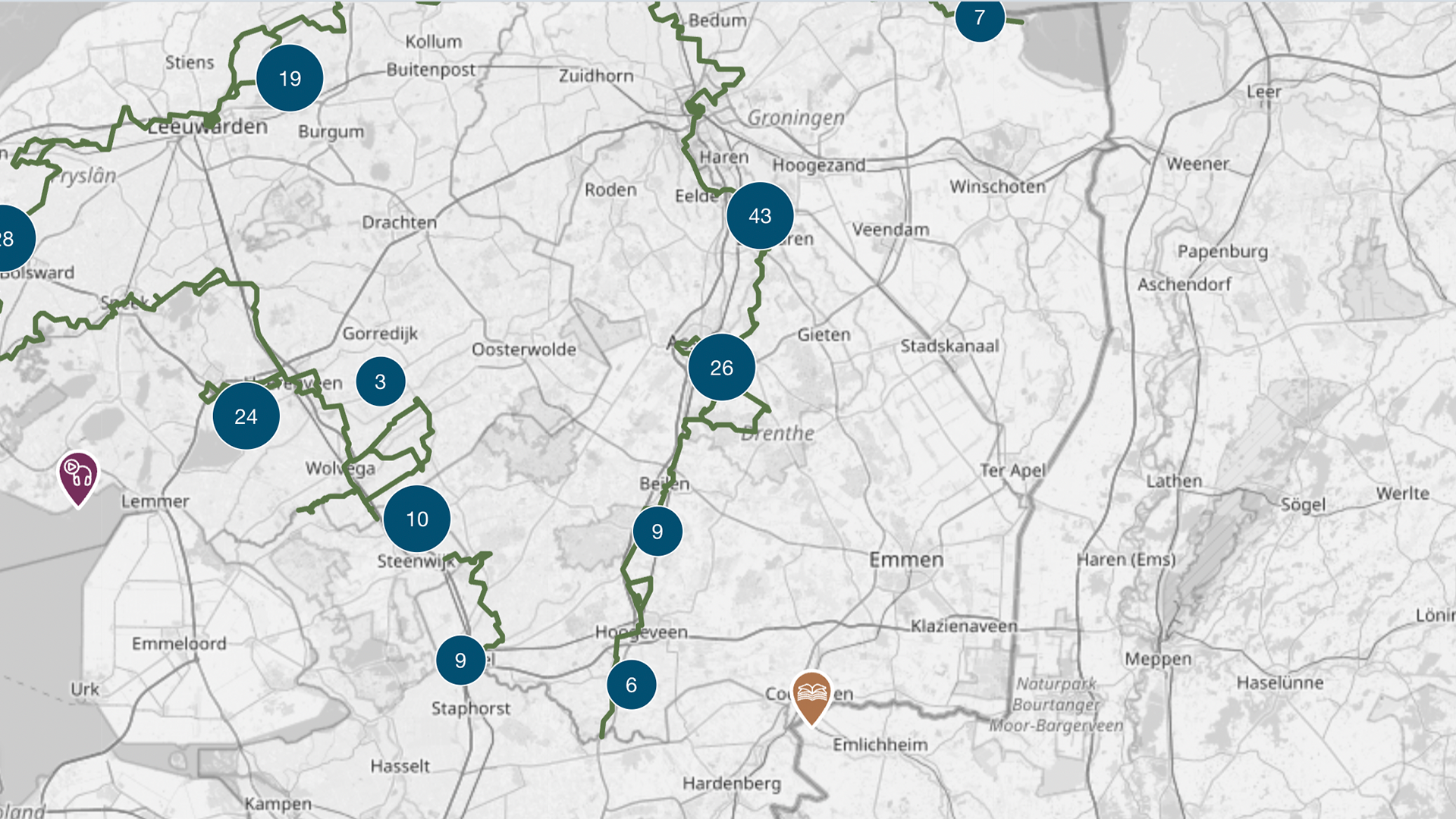In the lead-up to the ’80 Years of Freedom” in 2025, the LRE Foundation will launch a new long-distance walking route in Drenthe on June 28. Following the Friesland Route, the Drenthe route will be the second section of the Canadian Liberation Route to be inaugurated in the Netherlands.
Covering a distance of over 150 kilometres, the walking route in Drenthe spans from Meppel to Havelte and from Zuidwolde to Zuildaren and includes more than 50 stories, 60 remembrance sites and four circular routes.
The new route will be part of the Canadian Liberation Route, an essential addition to the Liberation Route Europe hiking trail network that focuses on retracing the steps of Canadian liberators in the Netherlands during 1944-45. Beyond the military story, the journey delves into the role of the resistance in liberation, the actions of secret agents, and the experiences of regular citizens.
As part of the launch ceremony on June 28, a “Vector of Memory” will be unveiled. These memorials, designed by the American architect Daniel Libeskind, are scattered throughout the province and mark significant events on the ‘Canadian Trail’. The monument has been adopted by the Hooghalen Public Primary School IKC de Bosvlinder, bringing local war history to life for children and passing on the legacy of WWII to future generations.
The development of the new long-distance walking route and the installation of the Vector of Memory in Drenthe were made possible by the Province of Drenthe, as well as organizations such as Regio Groningen-Assen, FB Oranjewoud, Stichting Waarborgfonds Meppel, vfonds, and the nine municipalities along the route.
“The launch of the new walking route in Drenthe, part of the Canadian Liberation Route, is a significant milestone in commemorating ’80 Years of Freedom’.” says Rémi Praud, LRE Foundation Managing Director. “It allows us to retrace the steps of Canadian liberators, shed light on resistance stories, and remember the experiences of ordinary citizens. Moreover, the unveiling of the ‘Vector of Memory’ monument creates a tangible link to the past, ensuring the legacy of World War II is passed on. We are grateful to the Province of Drenthe and our partners for making this initiative possible.”
